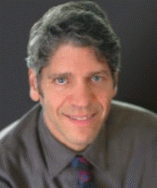My guest today is Paul Rogat Loeb, author and activist. Welcome back to OpEdNews, Paul.
JB: You've recently put out a new edition of The Impossible Will Take A Little While. Why did you feel the need to expand and update what was already a very fine piece of work?
PRL: I loved The Impossible's original edition, and people were still responding really well to it. But it had been ten years, and lots had happened in the world. Political cynicism has grown. The challenge of climate change has gotten worse. The gay rights movement has made amazing strides that none of us could have anticipated. Occupy and the Arab Spring left their complicated legacies. It just seemed time for an update. I've kept most of the original pieces, but worked with the authors to update them, so they felt as contemporary as possible. I've also added new pieces to make the book feel as contemporary as possible, but in a way that won't feel dated five years from now. I do think people need political hope as much as in any time I've lived through, so I also wanted the chance to reach a new group of readers with a work that so many people have told me has kept them going, from those new to political engagement to the most veteran activists.
JB: I can attest to that, Paul. Rob Kall at OpEdNews shared your book with me a few years ago when I was feeling overwhelmed. It really lifted my spirits and I recommend it to everyone! You write about the "the inevitability trap". What is it and what can we do about it?
PRL: The phrase "The Inevitability Trap" was coined by KC Golden, a terrific activist/writer who is now the board chair of the international climate change action group 350.org. He came up with it originally while working on other environmental issues and addressing the tendency of people to say "yes, that's regrettable, but there's nothing we can do about it." Which then became a self-fulfilling prophecy.
It definitely applies to climate change, where too many people have gone from "it isn't real" to, "I guess we're toast." Yet where even if we probably are now doomed to a world of far more extreme weather events, there's still a huge difference between the best and worst outcomes that will depend on what we do. We're dealing with this in Seattle where Shell is trying to home port the repair of an Arctic oil drilling rig, and its defenders are saying "they'll drill anyway." And that was the original sentiment around the Keystone XL Pipeline--nothing we can do. Except that as Mary Pipher describes in her wonderful essay in The Impossible Will Take a Little While, because she and a handful of friends jumped in when it seemed like Keystone was going to simply roll through Nebraska unchallenged, it's now been delayed again and again at the US federal level, while the opposition New Democratic Party has just been elected in the Canadian province of Alberta, on a platform that includes explicit opposition to the pipeline, and reining in the runaway tar sands development.
So you never know how history will turn out when you do act on your beliefs, but if you don't, you're defeated from the start.
JB: Agreed. Your books have found their way onto the curriculum of various colleges. That's heartening. Tell us how that's come about, please.
PRL: I've been delighted at the responses to both Soul of a Citizen and The Impossible Will Take a Little While from classroom adoptions. What's interesting is that they span all kinds of schools and all academic levels. People are reading them in advanced graduate programs, in lots of different disciplines. But I've also had amazing responses from first year students. And students who aren't normally engaged in academia. A professor friend teaching at Metro State in Minneapolis/St Paul recently passed on the following response:
"To begin with I hate reading. I can honestly say I've gone through school not reading a single lengthy book. When you assigned the book Soul of a Citizen, by Paul Loeb, I was skeptical. The first thought that came to mind was "Pfft, how many pages is it?" Little did I know, this book was going to reinvent my way of thinking. Soul of a Citizen is the most enlightening and inspiring book I've ever read, literally. The stories shared throughout Soul of a Citizen touched base on numerous doubts I had in my mind on what changes I could make in the world. The book created a foundation, and in my eyes, it can be referred to as the Bible for civic engagement. "
(Note: You can view every article as one long page if you sign up as an Advocate Member, or higher).






